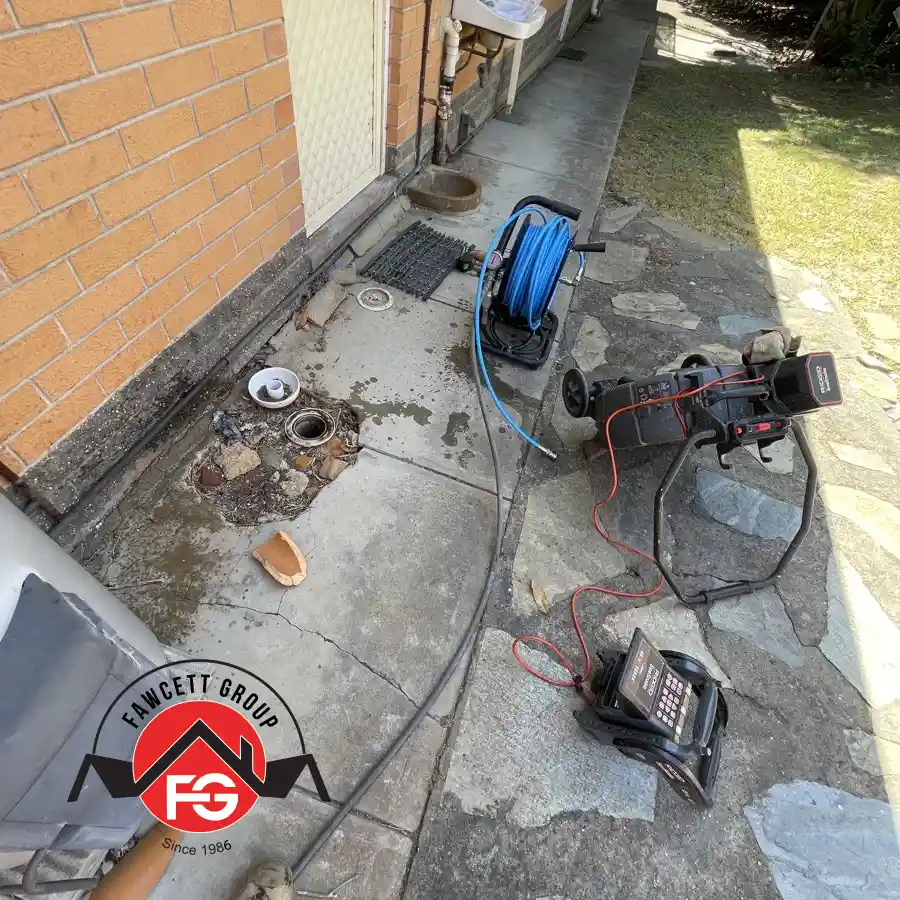Home » Common Sewer Backup Causes & Quick Fixes
Common Sewer Backup Causes & Quick Fixes
Sewer backups can be a real hassle, causing damage to your property and creating unsanitary conditions. It’s important to understand the common causes of sewer backups and the quick fixes you can implement to prevent further issues.
Here are some common causes of sewer backups and quick fixes to help you address the issue promptly:
1. Blocked Drains: One of the primary causes of sewer backups is clogged drains. This can occur due to a buildup of grease, hair, food particles, or foreign objects in your pipes. To fix this, try using a plunger or a drain snake to dislodge the clog. If the problem persists, it may be necessary to call a professional plumber.
2. Tree Roots: Tree roots are notorious for infiltrating sewer lines and causing blockages. As tree roots grow, they can crack or invade pipes, leading to backups. If you suspect that tree roots are the culprit, consider hiring a professional plumber who can use specialized equipment to clear the roots and repair any damaged pipes.

3. Damaged Sewer Lines: Over time, sewer lines can deteriorate due to age, corrosion, or shifting soil. This can cause leaks and blockages in your system. If you notice signs such as foul odors, slow drains, or gurgling noises coming from your plumbing fixtures, you may have damaged sewer lines. Contacting a professional plumber for a thorough inspection and repair is recommended.
4. Heavy Rainfall: During periods of heavy rainfall, excess water can overwhelm the sewer system, leading to backups. While this cause is beyond your control, you can take preventive measures such as installing a backwater valve or a sump pump to minimize the risk of backups during heavy rainstorms.
5. Flushed Non-Biodegradable Items: Flushing non-biodegradable items down the toilet is a common mistake that can lead to sewer backups. Items such as baby wipes, sanitary products, or paper towels should never be flushed as they do not break down easily and can cause blockages in your sewer system. Dispose of these items in the trash instead.
Remember, while these quick fixes may help resolve minor sewer backup issues, it’s always wise to consult a professional if the problem persists or if you suspect a more significant underlying issue. A licensed plumber can assess the situation thoroughly and provide you with the most appropriate and long-lasting solution.
What You Should do if You Have a Sewer Backup
If you’re facing the unfortunate situation of a sewer backup, it’s important to take immediate action to minimize the damage and protect your health and property. Here are the steps you should follow:
1. Ensure your safety: Sewer backups can contain harmful bacteria and other contaminants. Put on protective gear such as gloves, boots, and a face mask before entering the affected area.
2. Call a professional plumber: Contact a licensed plumber with experience in handling sewer backups. They will be able to assess the situation, identify the cause of the backup, and provide expert advice on how to proceed.
3. Shut off the water supply: Locate your main water shut-off valve and turn it off to prevent further water flow into your property. This will help contain the backup and reduce additional damage.
4. Document the damage: Take photos or videos of the affected areas for insurance purposes. This evidence will be helpful when filing a claim to cover any repair or restoration costs.
5. Contact your insurance company: Notify your insurance provider as soon as possible about the sewer backup. They will guide you through the claims process and provide information on coverage for sewer backups.
6. Clean and disinfect: Once the backup has been cleared by professionals, clean and disinfect all affected areas using appropriate cleaning agents recommended by your plumber or local health department. Proper sanitation is crucial in preventing further health risks.
7. Dispose of damaged items: Discard any items that have been contaminated beyond repair, such as carpets, furniture, or other porous materials that cannot be thoroughly cleaned.
8. Take preventive measures: Discuss with your plumber about installing backwater valves or other preventive measures to decrease the likelihood of future sewer backups.
Remember, dealing with a sewer backup can be overwhelming, but by following these steps and seeking professional assistance, you can effectively manage the situation and restore normalcy to your home or business.
Don’t wait until it’s too late. Minor blockage issues can cause major repairs. Book a drain inspection today!
Fast Same Day Blocked Sewer Services in Adelaide
Are you tired of dealing with a blocked sewer and in need of fast, reliable assistance in Adelaide? Look no further! Our dedicated team of experts is here to provide you with top-notch same day blocked sewer services.
We understand the urgency and inconvenience that a blocked sewer can cause. That’s why we pride ourselves on our quick response time and efficient solutions. Our experienced professionals are equipped with the latest tools and technology to quickly diagnose and resolve your sewer issues.
Whether it’s a minor blockage or a more complex problem, our team has the knowledge and expertise to tackle it head-on. We will work diligently to clear your sewer line and restore normal functionality to your property in no time.
Not only do we offer fast service, but we also prioritize quality and customer satisfaction. Our goal is to provide you with a long-term solution that prevents future blockages and ensures the smooth operation of your sewer system.
With our same day blocked sewer services, you can have peace of mind knowing that we are always just a phone call away. Don’t let a blocked sewer disrupt your daily routine – give us a call now and let us take care of the problem efficiently and effectively.





